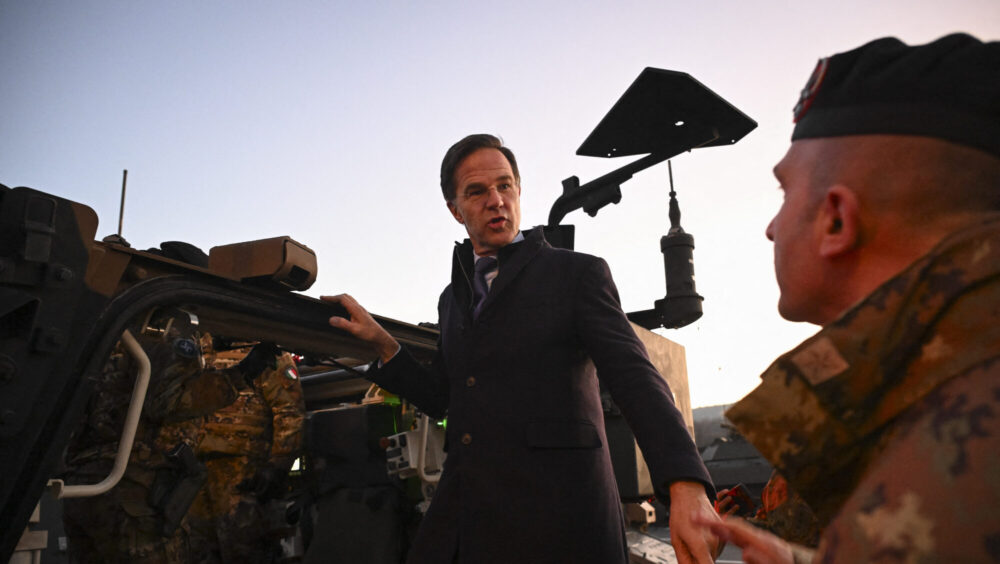
NATO Secretary General Mark Rutte
Nikolay DOYCHINOV / AFP
Mark Rutte, the new NATO secretary-general, yesterday told the European Parliament that EU leaders must boost defence budgets. Otherwise, Europeans might as well “get out your Russian language courses or go to New Zealand.”
Rutte suggested that taxpayer money going towards pensions and to “health and social security systems,” should potentially be reduced, because while “we are safe now,” we may not be “in four or five years.” He stressed that nations would only need to redirect “a small fraction of that money to make defence much stronger.”
Unlike Donald Trump, who has long been a very vocal critic of Europe’s NATO contributions, Rutte was fairly slim on specifics, saying that countries will have to spend “impressively more than the 2%” of their GDP—a target currently met by three-quarters of the alliance’s 32 members.
The incoming U.S. president declared last week that NATO allies should spend 5% of their annual GDP on defence, insisting that “they can all afford it.” Officials from the alliance refused to endorse the figure, and a handful of European defence ministers said it was unreachable. However, Poland’s defence minister suggested that his country “can be the transatlantic link between this challenge set by President Trump and its implementation in Europe.”
Some reports suggest that Trump’s demand was a negotiating tactic, designed to make European leaders meet him in the middle—between, say, 3 and 4.5%.
Rutte himself has touted figures around the 3.5% mark. He also stressed that Europe must not step back on its working relationship with the U.S. because it is an “illusion” to think the continent can go it alone on defence.
This was not the first time Rutte has urged Europe to increase defence spending, including by cutting national welfare budgets. However, yesterday marked his first appearance in the European Parliament as NATO chief, serving as an indicator of the rhetoric likely to define his tenure.
